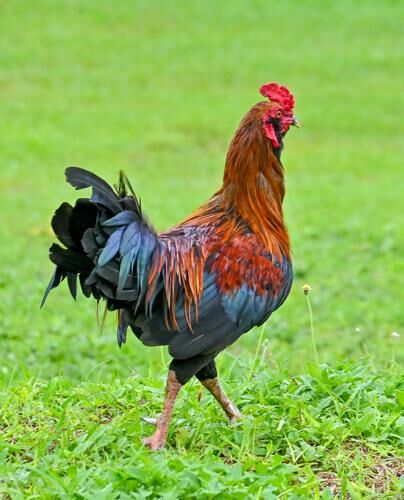HAGÅTÑA (The Guam Daily Post) — Over 85 million birds in the United States have been affected by the highly contagious avian influenza, and to protect the island from the virus, agriculture officials have banned importation.
“As we confront the latest updates on highly pathogenic avian influenza, it is imperative to recognize its multifaceted impact. Beyond threatening the livelihoods of the poultry industry in the mainland United States, this relentless virus has also impacted the dairy cattle industry and caused occasional human illness, and in severe cases, even death,” stated Territorial Veterinarian Dr. Mariana Turner in a press release from the Guam Department of Agriculture.
The importation ban is effective immediately, with no projected end date in response to the increase in cases.
“The Guam Department of Agriculture Animal Health Division reinstated the ban on all live poultry imports and hatching eggs, effective immediately,” the DOAG release said.
In the last two years, avian flu outbreaks resulted in partial bans being instituted in the U.S. The first partial ban was around this time of year.
“On March 1, 2022, and November 29, 2023, DOAG implemented a temporary partial ban on poultry imports based on the (United States Department of Agriculture’s) Animal and Plant Health Inspection Service confirmation of an outbreak of highly pathogenic avian influenza,” the DOAG release said.
The last time cases of infected birds spiked, it resulted in the slaughter of nearly 2 million chickens – 1.6 million hens and 337,000 young hens, the release said.
As of April, an increase of over 3 million affected birds were reported.
“Based on the latest USDA APHIS HPAI detection report, this has prompted an increased concern of an ongoing resurgence of avian influenza,” the release said, referencing a graph that showed an increase of 1.7 million affected birds since January.
The increase alarmed officials, who further noted that HPAI has been detected in a total of 1,118 flocks in 48 states.
“Of those, 475 flocks have been commercial and 643 have been backyard,” the release said.
“The U.S. poultry industry is one of the largest in the world and an important sector of our agricultural economy. If U.S. poultry are exposed to highly contagious diseases like highly pathogenic avian influenza and virulent Newcastle disease, the impact on our economy could be severe and international trade can be impacted. These deadly diseases quickly kill large percentages of any flock they infect,” the USDA said in the report.
As a precautionary measure, the DOAG Animal Health Division reinstated the temporary ban until the spread of the virus decreases once again.
“Our vigilance and collaboration are paramount as we navigate these challenging times, prioritizing both animal and human welfare in our efforts to mitigate this global threat,” Turner said.
The USDA said signs of illness in birds include sudden death without clinical signs; lack of energy and appetite; decreased egg production or soft-shelled or misshapen eggs; swelling of the head, comb, eyelids, wattles and hocks; and diarrhea to name a few.
The virus does not just affect chickens but also domestic turkeys, quail, ducks, geese, guinea fowl and wild birds.
The release said that at this time, the outbreak does not present an immediate human health concern.

A rooster walks in a field on Monday, Aug. 14, 2023, in Yona. The Guam Department of Agriculture Animal Health Division reinstated the ban on all live poultry imports recently.










